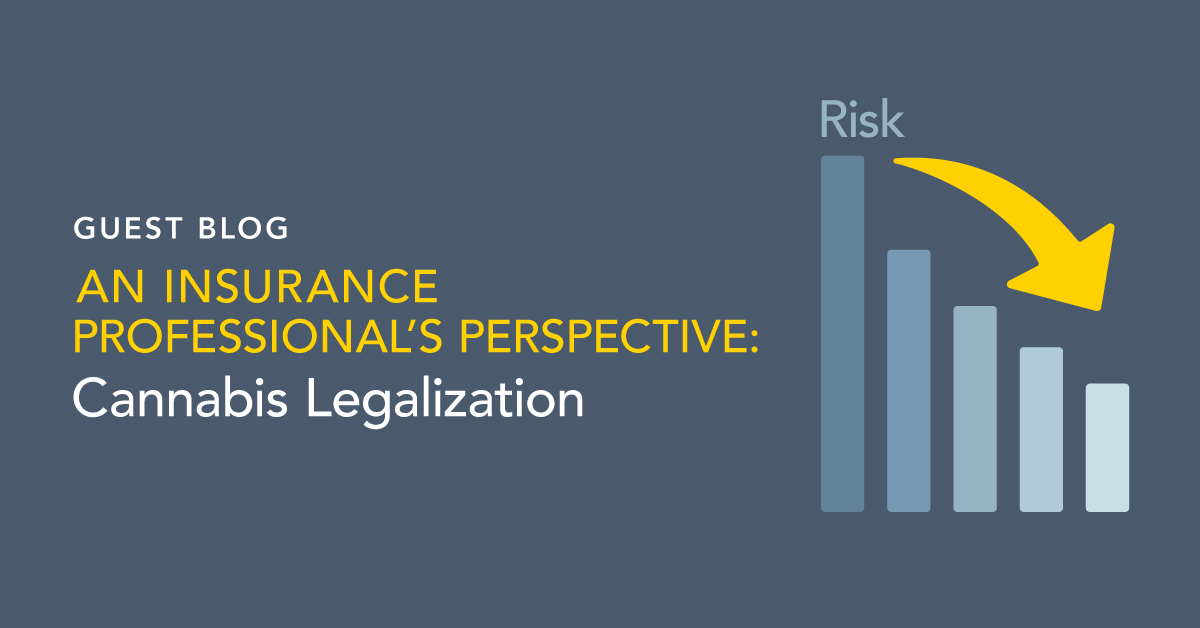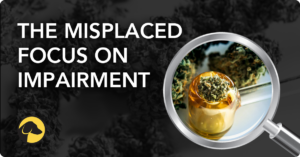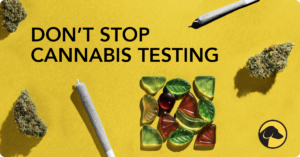
Impacts of Cannabis Legalization: Insights from the Insurance Industry
Jaime, thank you for spending some time with me to share your perspectives and those of the insurance industry.
Q: Could you provide a short overview of what insurance services CRI provides to its clients?
A: CRI is an independent captive consultant that helps companies take control of their insurance through the creation and oversight of group captive1 insurance companies. The member companies own the captive, which provides better transparency and control over coverage, claims, and premium costs.
__
Q: What types of companies do the captives cover? Do they serve companies from specific industries?
A: CRI works with more than 5,400 mid-sized companies across the United States. Our model works for companies from a wide range of industries (manufacturing, construction, distribution, trucking, transportation, etc.). In addition, member companies’ management teams are committed to safety, with solid safety programs in place.
__
Q: What are you hearing from captive members as more states legalize recreational cannabis?
A: The number one concern of members is safety. They want to ensure a safe workplace. However, current forms of testing don’t show the whole picture. For example, a member company in the construction industry had a great candidate for an open position. The candidate was in an adult use state and admitted their recreational use of cannabis to human resources. We had a great discussion with the member company about the pros and cons of hiring this specific candidate. The member decided to hire the candidate and arranged for random testing post-hire as it was a safety-sensitive position. While this still doesn’t solve for the recent use and current impairment problem, this member company found it to be the fairest route to take.
Another member had a similar situation except this time it was a current employee. Not only was it a current employee, but one of their best employees who tested positive in a random drug test. The human resources department of this member company was shocked by this finding and found themselves in quite the dilemma. Ultimately, it opened their eyes to the problems current cannabis tests can cause for cannabis users. Why should a cannabis user be disciplined for legal use when their situation can be like the person who has the occasional glass of wine (or two) to unwind, or someone who cracks open a cold beer after mowing the lawn? This member retained the employee and promptly updated its policy.
__
Q: How do you advise members who are considering dropping cannabis testing?
A: Some members are eliminating cannabis as part of their pre-hire testing for the because current cannabis tests do not tell the whole story. Finding quality candidates is tough, especially right now. With the legalization of recreational cannabis, our members want to ensure they do not discriminate against something that is legally used outside of the workplace. I believe others do not want to shrink the pool of qualified candidates even further.
To promote a safe, productive, and healthy work environment, we do ask that members adopt and maintain a proactive Substance Abuse Prevention and Control Program covering all employees that has been reviewed and approved by a local labor/employment attorney.
Here are some recommendations for what to include in this type of program:
- A statement of the purpose and scope
- All forms of impairing drugs whether prescribed, legal, illegal, synthetic, etc.
- Definitions of what constitutes abuse and impairment
- Special considerations for employees in safety-sensitive positions as well as a list of which positions are safety sensitive
- The who, what, where, when, and why of drug or alcohol testing
- Training for employees, supervisors, and others to help identify potential impaired behavior and substance abuse behavior
- Assistance for those who voluntarily seek help for impairment issues.
We always remind our member companies to re-evaluate and update their programs periodically so the programs reflect current methods and technologies of substance testing, and also reflect the rapidly changing legislation regarding the use of any recreational or medicinal substances.
__
Q: How do you advise members who are balancing the liability of wrongful termination with the liability of negligence for an accident caused by someone who might be impaired on the job?
A: I urge our members to use an abundance of caution when considering mandatory post-accident testing for cannabis as it may result in an incorrect conclusion since current tests cannot identify recent use. The conclusion of impairment without proof of recent use can definitely swing the pendulum in the wrong direction when it comes to liability and negligence.
Until technology for recent use is widely deployed, this will be a concern. In the meantime, when it comes to employment issues, I tell our members to look at cannabis under the same lens they do alcohol. For example, if you do not allow your employees to consume alcoholic beverages in the workplace or come to work drunk, then you should not allow employees to use or consume cannabis products or come to work high. It’s a simple and fair way to look at an issue that has become very complicated, which is why recent use testing, as well as impairment training, are so important to maintain safety and employee trust.
__
Q: If your member companies were advising Senator Schumer (D-NY) on his recent draft cannabis legislation, what do you think they would like included to help them better navigate cannabis legalization?
A: My advice (and this is my advice and not that of CRI) to Senator Schumer would be the inclusion of language for employers around cannabis testing. I believe this is necessary because employers who operate in multiple states must navigate so many different testing laws and regulations. One easy-to-understand standard would be extremely beneficial to employers. The language should be extremely detailed and lay out the ground rules for who MUST be tested, when they MUST be tested, and how that testing will be conducted. Senator Schumer and his colleagues should leave NO room for misinterpretation by the employer or employee. The legislation should also provide resources (and funding) for impairment training, recent use testing, and substance abuse programs, especially for small businesses. Training, testing, and substance abuse programs are very beneficial, but they can be extremely costly. We need to make them easy, accessible, and affordable.
__
Q: What are the top things you want member companies to consider when they are updating their cannabis testing policies?
A: Here are the top four questions to consider when updating cannabis testing policies:
- Would I want to be fired over something I did (legally) during my free time?
- Does my company have safety-sensitive positions?
- Are any of our employees covered by the federal Department of Transportation (DOT), which may override local policies or laws?
- Has a local labor or employment attorney reviewed and approved our policy?
Once again, Jaime, thank you for your time. We look forward to talking with you again about how CRI is helping employers navigate insurance dilemmas in the era of cannabis legalization.

September 21, 2021
By JENNY LYNN
Co-Founder
Share












